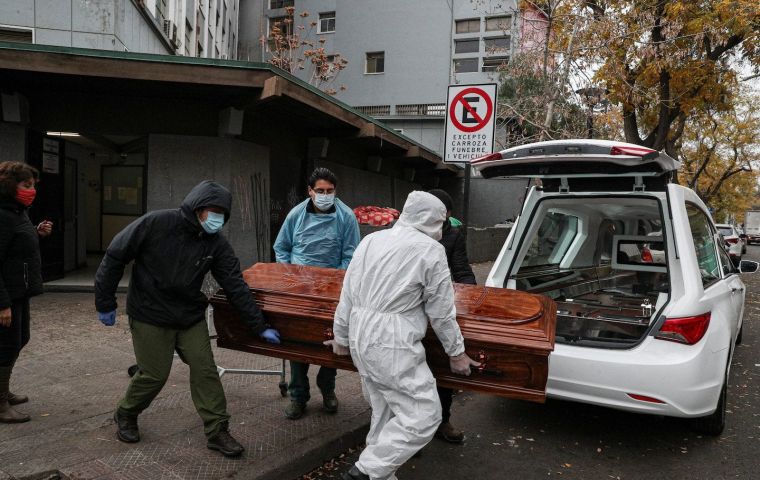MercoPress. South Atlantic News Agency
Inequality and coronavirus pushing much of Chile's middle class back to poverty
 “The richest 10% is the only sector relatively bulletproof in Chile,” said Dante Contreras, Center for Social Conflict and Cohesion Studies assistant manager
“The richest 10% is the only sector relatively bulletproof in Chile,” said Dante Contreras, Center for Social Conflict and Cohesion Studies assistant manager Middle classes in Chile are going through a complicated moment, with many slipping into poverty as long-established inequality was increased by the coronavirus pandemic and overall slowdown of the economy.
Last October a protest movement, largely led by middle classes took furiously to the streets against inequality and the protests dragged on for months, affecting many small businesses -- and just as those were starting to recover, the coronavirus struck
With high levels of debt, facilitated by easy access to credit, and a lack of state support, a significant number of the middle class have been left in a vulnerable situation by the virus crisis.
“The richest 10% is the only sector relatively bulletproof in Chile,” said Dante Contreras, assistant manager at the Center for Social Conflict and Cohesion Studies (COES).
Contreras is also a professor at the University of Chile, which has calculated that poverty has risen from nine to 15% in May.
There's an emergency family fund that was created to help people cope with the health crisis, but it only covers households bringing in less than 400,000 pesos (US $490) a month. That accounts for only 34% of Chilean households, meaning the entire middle class -- which makes up almost half of Chile's 18 million people -- gets nothing.
“What you see in Chile is a high degree of fluctuation in household income. Families that leave poverty and families that return to poverty. And that is a snapshot of the high level of fragility that makes it difficult for them to take long term decisions,” said Contrerasa.
Since 1990, Chile has dramatically reduced poverty from 40 to 9%, but the middle classes improved their lifestyles through credit. Now, 70% of those families live with unsustainable levels of debt.
A study by the University of Chile found that the self-employed had been the worst affected by the pandemic, seeing their salaries fall by 60%.
“The fall in the wellbeing levels of the middle classes is going to be significant,” said Contreras. “Even if they don't fall into poverty, it will be a drastic change: changing from the private to public health system, the children's schools or liquidating assets.”
In Chile, there is a wide disparity in the level of public and private education and health care.




Top Comments
Disclaimer & comment rulesCommenting for this story is now closed.
If you have a Facebook account, become a fan and comment on our Facebook Page!